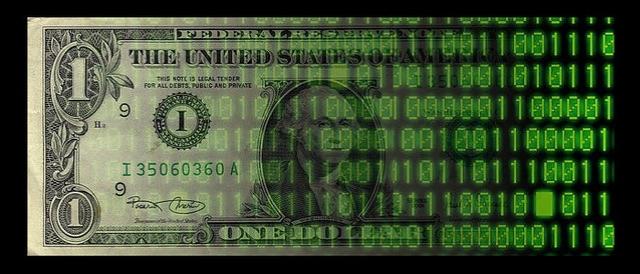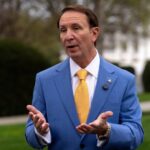

FamZoo Staff
The race is on between states and the incoming Trump administration to enact real change on digital asset policy this year.With a recent executive order, the race is on between states and the incoming Trump administration to enact real change on digital asset policy this year.
With the stroke of a pen, Trump rolled out his agenda with a ban on Central Bank Digital Currencies, establishing a working group on digital assets, and revoking destructive Biden-era regulations. But states are also gaining ground on these same policy areas by exploring strategic Bitcoin reserves, protecting digital assets, banning CBDCs, and attacking debanking practices.
As policymakers at the state and federal race to be “first movers” on these polices, Americans are the ones who win — even those who are not connected to the Bitcoin, crypto, and digital asset spaces.
Americans face threats to financial liberty
Over the last four years, states wrestled with a Biden White House that leaves a legacy of overregulation. One issue where this manifested was the looming threat of a central bank digital currency (CBDC).
CBDCs are a type of cryptocurrency, or programmable money, that would allow the government to have pinpoint control over a cashless society. Many other countries have already adopted this technology, offering a glimpse into what America with a CBDC could look like — and it doesn’t look good. This technology threatens personal liberty by granting the government perfect control over how each dollar is spent, taxed, and distributed.
If you want a preview into the tyranny possible through a CBDC, look no further than another issue known as debanking.
Debanking is “political and religious discrimination by financial institutions” based on what they deem your level of “social risk.” Non-green industries, religious groups, Bitcoin, the crypto industry, and conservatives are the common <img alt captext="FamZoo Staff” class=”post-image-right” src=”https://conservativenewsbriefing.com/wp-content/uploads/2025/02/trump-and-the-states-confront-digital-issues.jpg” width=”450″>targets.
More than a consequence of private institutions deciding who to do business with, debanking is part of a program devised by the federal government dubbed “Operation Chokepoint 2.0” with the purpose of crippling your ability to transact in an increasingly cashless society.
Americans escaping this tyranny and seeking alternatives to a system which abandoned them, turn to private, digital assets like Bitcoin as a store of value. But even this technology is still vulnerable to regulators at the federal, state, and local levels who seek opportunities to overregulate it. Unchecked, the government will stifle innovation with this free market solution.
Trump enters the race on financial liberty — unpacking his recent executive action
In his first week Trump revoked Biden’s plan to constrain digital assets and advance the development of a CBDC. This provides an immediate inversion of a federal bureaucracy which uses these means to expand their power.
Trump’s order also creates the Working Group on Digital Asset Markets to execute an ambitious agenda. The priority of which is to create a digital asset stockpile with the 198,000 — valued at $21.2 billion — Bitcoin the government already holds.
To go further, the president should turn an eye to protecting financial privacy and security more broadly. Not only should Trump end Operation Chokepoint 2.0, but swiftly release all documents related to the program. This would halt debanking practices and reveal the extent of the government’s weaponization of the financial system.
But these actions are merely temporary. Real, lasting change will come as these moves set the stage for the policy agenda in a new Congress, poised to implement a statutory ban on CBDCs, permanently establish a strategic Bitcoin reserve, and investigate Biden’s abuse of power.
States got a head start on financial liberty
Trump’s actions are a welcome move among states. Many worked to preempt a CBDC by protecting their residents through with various bans which restrict such a system. On debanking, 15 state attorneys general publicly demanded answers from financial institutions that implement these practices, as Virginia and Oklahoma consider statutory bans this year.
Additionally, several states — including Arkansas, Louisiana, Montana, Oklahoma, and Wyoming — implemented protections for digital assets like Bitcoin, with more to join this year. This guarantees financial liberty of individual Americans abandoned by a system that seeks to gatekeep their prosperity.
At least 13 states are even embracing Bitcoin for their own financial sovereignty and stability through strategic Bitcoin reserves.
What this means for America
This race for financial liberty is crucial for all Americans — not just those holding Bitcoin and digital assets. Government overreach from debanking and the surveillance state are realities that affect everyone. Promoting digital asset rights, banning CBDCs, and ending government-coerced debanking protects Americans’ ability to engage in the financial system and defend their livelihoods.
Americans should be thrilled about this competition between the states and the incoming administration. Rarely do you see the government moving at full speed to secure those freedoms on the verge of extinction.
Niklas serves as the policy director at the Idaho Freedom Foundation. There, he specializes in data analysis and public policy research that focuses on healthcare, science, technology, and finance.
Image: FamZoo Staff





